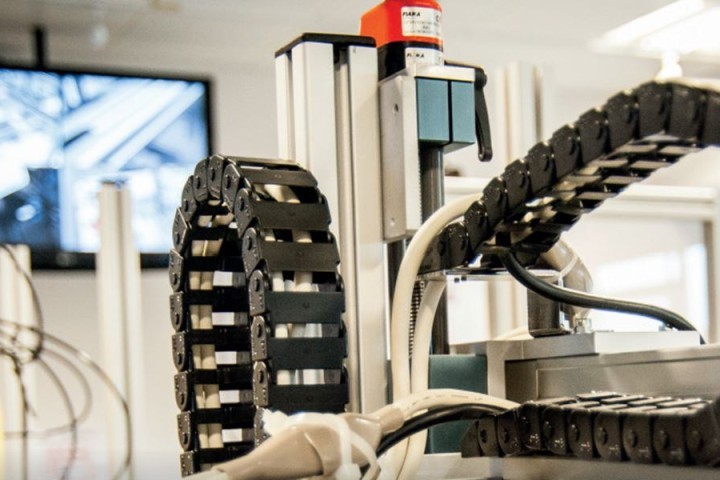The marriage of the digital and physical worlds is a step change that allows equipment to work smarter and more efficiently - providing greater information and changing production processes forever.
It all sounds pretty daunting, but help and advice is at hand for Lancashire’s manufacturing SMEs as they look to come to terms with this fast-changing world and harness its benefits.To that end the University of Central Lancashire (UCLan) is offering eligible Lancashire-based manufacturing SMEs 150 hours of fully-funded support.
The aim is to help businesses assess current manufacturing technology levels and undertake short-term research projects so they can develop their process and become Industry 4.0-ready manufacturers.The DigitME2 project, based at the university’s Burnley campus, is looking to reach out to more of the county’s manufacturers and client technology manager Mike Mead and his team believe they can make a real difference.
He cites a number of current initiatives they are involved in, looking at processes, manufacturing workflows and how Big Data and the Internet of Things can be harnessed by companies to improve productivity.Mike says: “We’re involved in a whole range of projects. We are here to help Lancashire manufacturing SMEs become 21st Century manufacturers.”
The programme’s work lab allows manufacturers to visit and see robotics, sensor technologies and 3D printing at work and get a valuable insight on how they might help them on the shop floor.For instance, Big Data can be used to compare maintenance events and machine information for each piece of equipment in a manufacturing process.
These “machine learning algorithms” can then produce optimal maintenance schedules based on real-time information and historical data to maximise equipment use, minimise expense and avoid surprise work stoppages. All by using data that already exists.Then there is robotics. Robots have a poor reputation across the UK with studies showing that there are currently an estimated 190,000 robots within the UK - approximately one tenth that of Germany. However, research has shown that each £1 invested in automation returns an estimated £49.
- This feature on the fourth industrial revolution was published in association with UCLan. To read in full, purchase Lancashire Business View #79.
Enjoyed this? Read more from Ged Henderson






















